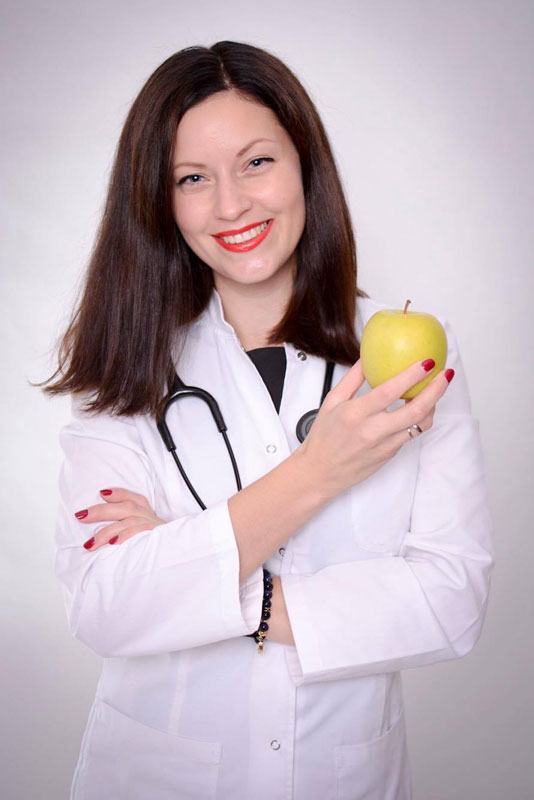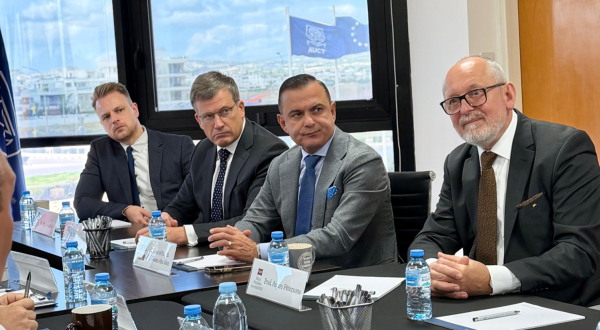Latvian talent on the European medical scene
 Vita Skuja, Lecturer at the Department of Internal Diseases at Riga Stradiņš University (RSU) has been elected as one of nine young European gastroenterologists who will represent the interests of junior physicians in the Young Talent Group of the United European Gastroenterology for two years (from 1 January 2019 to 31 December 2020). It consists of nine specialists from various European countries, who are re-elected once every two years to give young talents from other countries an opportunity to participate in the work of the group, establish contacts, gain knowledge and develop the field of gastroenterology in Europe.
Vita Skuja, Lecturer at the Department of Internal Diseases at Riga Stradiņš University (RSU) has been elected as one of nine young European gastroenterologists who will represent the interests of junior physicians in the Young Talent Group of the United European Gastroenterology for two years (from 1 January 2019 to 31 December 2020). It consists of nine specialists from various European countries, who are re-elected once every two years to give young talents from other countries an opportunity to participate in the work of the group, establish contacts, gain knowledge and develop the field of gastroenterology in Europe.
The Young Talent Group is one of the structural units of United European Gastroenterology, established to involve young and promising physicians in the work of the association and its committees; their cooperation with experienced colleagues would promote the development of gastroenterology and ensure the high level of professionalism in the future, when current young talents will become the leading specialists of Europe.
“Participation in the Young Talent Group is not just an honour, it is a great opportunity to establish cooperation and contacts which will promote the improvement of academic knowledge and professional growth of Latvian medical students and junior gastroenterology residents. By working in the Young Talent Group, establishing and developing contacts with already experienced and respectable gastroenterologists who represent the European association and leading medical treatment institutions, I intend to promote the training and practice possibilities for our students and residents in foreign clinics, as well as to invite prominent specialists in their field as well as guest lecturers to Latvia”, Vita Skuja tells.
Young Latvian gastroenterologists need more practical, knowledge-based training in domestic and foreign clinics. It is important to take advantage of the situation when starting studies and mastering the basics, while later it is necessary to gain experience in treating patients and performing manipulations in a clinic under the supervision of good teachers. These are interrelated forms of training. Simulation provides students with basic skills, without which they should not be able to make contact with the patient, whereas further training in clinics improves these skills. This particularly relates to endoscopy and ultrasonography, which is an integral part of the European gastroenterologist residency programme, as seen by Vita Skuja who has regularly attended various international gastroenterology events, conferences, training courses and summer schools for more than three years before being elected to the Young Talent Group. This was the reason why colleagues from Latvia and other European countries encouraged her to apply for the Young Talent Group.
Vita Skuja is active not only on an international scale, but also on a Latvian scale — she is Chairperson of the Board of the Latvian Society of Young Gastroenterologists.
Although there had been no physicians among her close or distant relatives, Vita Skuja already knew in the 10th grade that she would choose a doctor’s profession, as she wanted to help patients and liked working with people because of her personable character. Possibly, this choice was also prompted by the unfulfilled dream of her grandmother — to become a doctor.
Vita was already interested in gastroenterology during her first study years at the RSU Faculty of Medicine, since the young student liked it, finding it a highly logical and understandable field of medicine. 12 years have passed since she started her studies at RSU, she has a physician’s certificate and now a Doctoral degree. Concurrently to her work as a physician, Vita Skuja teaches gastroenterology to RSU medical students and is actively involved in social work.
Speaking of aspects to be improved in Latvian medicine, the young physician highlights the great importance of medical education at school to ensure that officials and education specialists consult more with physicians — both lecturers and doctors — in the development of a health studies programme in order to promote public understanding of crucial health-related matters as much as possible, which would actually reduce the sickness and death rate resulting from the most frequent diseases typical of the Latvian population.




